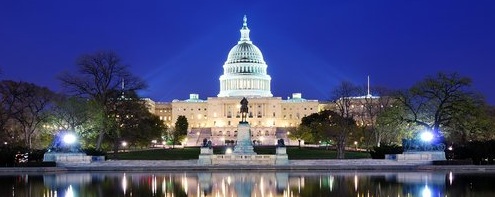
Congressional Attack on Religious Hiring
A recently introduced bill to reauthorize federal drug treatment programs includes language to ban from participation faith-based providers that take account of religion in hiring. This is an attack on the SAMHSA Charitable Choice language that President Clinton signed into law in 2000. The bill would also undermine the Religious Freedom Restoration Act (RFRA), also signed into law by President Clinton, in 1993. RFRA is Congress’s own measure to ensure that the government respects religion when it acts.
The bill is HR 5466, co-sponsored by Rep. Patrick Kennedy (D-RI) and Rep. Gene Green (D-TX). The bill would reauthorize federal substance abuse treatment funding that is administered by the Substance Abuse and Mental Health Services Administration (SAMHSA).
The bill proposes to add to the Public Health Service Act, Title V, the requirement that every grantee and contractor must agree to “refrain from considering religion or any profession of faith when making any employment decision” about anyone who will be involved in providing the federally funded services. And this ban on religious hiring “applies notwithstanding any other provision of Federal law, including any exemption otherwise applicable” to a religious organization.
Congress passed two bills in 2000 adding Charitable Choice language to SAMHSA programs, and President Clinton signed both into law. The Charitable Choice language provides that faith-based organizations can receive federal funding without first suppressing their religious character, while requiring that no one be forced into religious activities.
Charitable Choice restates the freedom of faith-based organizations to hire on a religious basis, as recognized by the religious exemption of Title VII of the 1964 Civil Rights Act. However, some of the SAMHSA funding is provided via programs that include a ban on religious hiring. Thus, when the Bush administration promulgated SAMHSA Charitable Choice regulations in 2004, it incorporated into the regulations a special procedure made possible by the Religious Freedom Restoration Act. RFRA enables a religious organization to avoid complying with a generally applicable rule that would impose a substantial burden on its religious practice, if the government cannot show that it has a compelling interest in forcing the organization to comply despite the burden. In the case of SAMHSA, the regulations set out a method by which a faith-based provider that engages in religious hiring can assert its RFRA right to participate despite the religious hiring ban.
The language proposed by HR 5466 would ban religious hiring in all SAMHSA programs and also foreclose the RFRA alternative.
Rep. Kennedy has commented that the bill “acknowledges that many individuals receive their treatment and recovery services through faith- and community-based organizations.” However, rather than maintain the Charitable Choice language that Congress put into the law so that those faith-based organizations can participate without sacrificing their religious identity, Kennedy wants the law to be more restrictive. His excuse? Religious hiring is “discrimination,” he says, and by banning it he will create a “balance” between “civil rights protections” and “the critical need to expand access” to treatment services.
But under the Civil Rights Act, religious hiring by religious organizations is not discrimination—it is not banned but rather is protected. The Civil Rights Act already has the right balance: religious organizations can take account of religion when selecting their staff—after all, religion is a defining characteristic—but they cannot discriminate in employment on the basis of irrelevant characteristics, such as race, sex, and national origin.
Rather than “expanding access” to treatment services, this attack on religious freedom will restrict participation by faith-based organizations, leading to reduced choices for people seeking help for their addictions.
